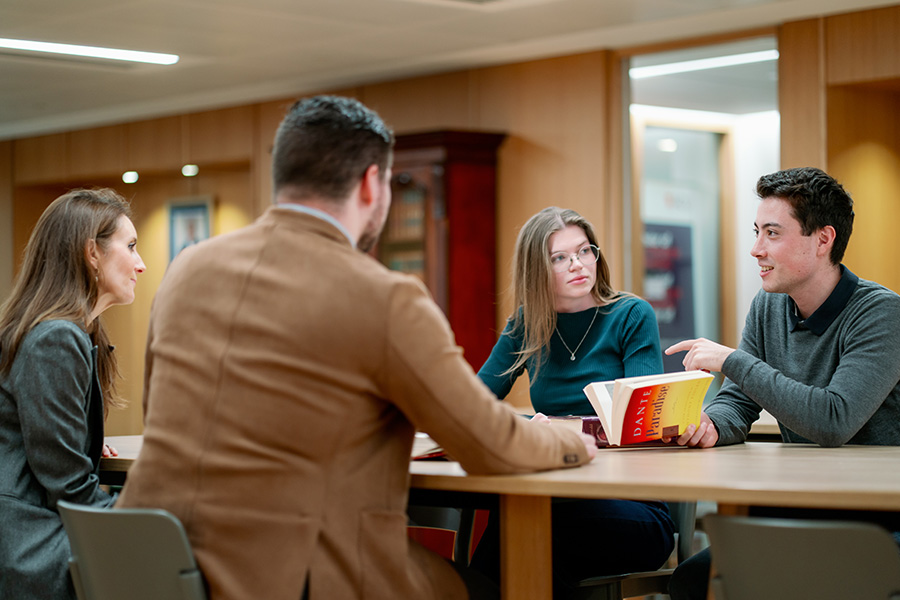In 399 BCE, when Socrates stood trial in Athens accused of impiety and corrupting the youth, he made a choice that would define Western intellectual culture for millennia. Rather than flee or enter voluntary exile, he defended himself, subjecting his society’s most cherished assumptions to withering examination. “The unexamined life”, he famously told the jury that would sentence him to death, “is not worth living.”
Socrates wasn’t celebrating Athenian democracy and culture; he was challenging it, question by question, until his fellow citizens could bear it no longer. This might be one of Western intellectual tradition’s greatest gifts to humanity: a tradition that insists on repeatedly examining and questioning itself, fostering a spirit of critical inquiry that remains as vital today as it was then.
This year, Australian Catholic University (ACU) took in the fifth cohort of Ramsay Scholars — and after half a decade of running this program, I’m more convinced than ever that a curriculum devoted to the study of Western civilisation is essential.
Let’s not pretend this hasn’t been contentious. When the Ramsay Centre for Western Civilisation first proposed to fund a series of programs at Australian universities, the response was anything but muted. Staff and students protested. Some universities rejected the proposal over concerns about academic freedom. Critics asked questions — some legitimate, others less so — about whether such a program would be a vehicle for ideological indoctrination rather than genuine education.

These concerns deserve more than lip service. The backbone of Western civilisation includes war, slavery and oppression. No serious thinker would deny this. But it also includes the intellectual tools to critique those very things: the practice of reasoned argument, the language of human dignity, the insistence on examining received wisdom.
ACU’s Western Civilisation program offers a multi-disciplinary study of the liberal arts in small classes devoted to the Socratic method: a form of argumentative dialogue, pioneered by its namesake, that is based on asking and answering questions to draw out ideas and underlying assumptions.
This means students in the program encounter the good and the bad of Western civilisation, exploring the gifts it has given the world — liberal democracy, the scientific method and the notion of human rights, to name a few — while acknowledging that its history, like that of all civilisations, has at times been characterised by violence and tyranny.
In the five years since our program commenced, we have demonstrated repeatedly that this is not an apologia for the canon of Western civilisation. Studying the most vital works of art, culture and thought in this tradition, diverse as it is, does not equate to uncritical acceptance or adherence. Nor does it signal a diminution of other traditions. Rather, it’s a way of inviting young scholars to learn from the Western canon by exploring it — rigorously, seriously and sometimes uncomfortably. As Tyler Paytas, a senior lecturer in the Western Civilisation program, recently wrote, “the underappreciated element of the Socratic method is self-criticism. Socrates never pretended to perfect wisdom; he hunted for his own blind spots.”
The relevance of this becomes clear when we consider that we live in a time when division dominates the discourse, when dialogue and self-scrutiny have taken a back seat to one-eyed ideology. In such an environment, an academic program that promotes critical thinking, respectful discussion of ideas and careful consideration of different perspectives and the dignity of those who hold them, is exactly what we need.
Indeed, what strikes me most about the ACU Ramsay Scholars — now numbering some 150 students and alumni in total — is how skillfully they’ve learned to interrogate the Western tradition. It’s not dissimilar to what Socrates did: examining, questioning, scrutinising and refusing the ease and comfort of prevalent wisdom.
This is precisely the kind of intellectual engagement that Paul Ramsay envisioned when he left his generous gift to the arts and humanities in Australia. He wanted to nurture a better-informed society that understands its past, works to improve the present and looks confidently to the future. Over the past five years, ACU has been honoured to help to bring that vision to life.
This endeavour aligns with our deepest commitments as a Catholic university: to the pursuit of truth wherever it leads. It serves to produce the kinds of graduates who have the skills to navigate the most complex societal issues, the empathy to serve their communities and the knowledge to engage thoughtfully — and gracefully — with the world around them.
Professor Zlatko Skrbis is Vice-Chancellor and President of Australian Catholic University.
This article was originally published on ABC Religion & Ethics and is part of the Vice Chancellor’s Blog, which highlights stories, insights and perspectives from across the university.
We're available 9am–5pm AEDT,
Monday to Friday
If you’ve got a question, our AskACU team has you covered. You can search FAQs, text us, email, live chat, call – whatever works for you.